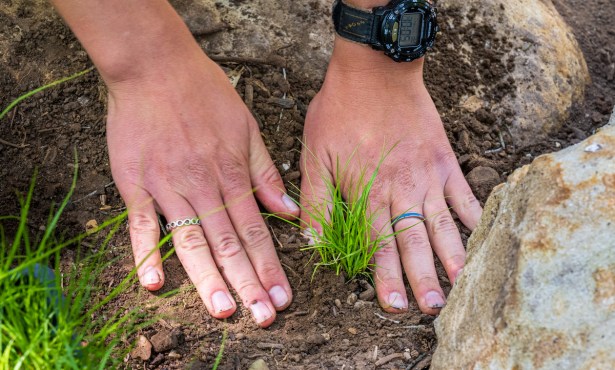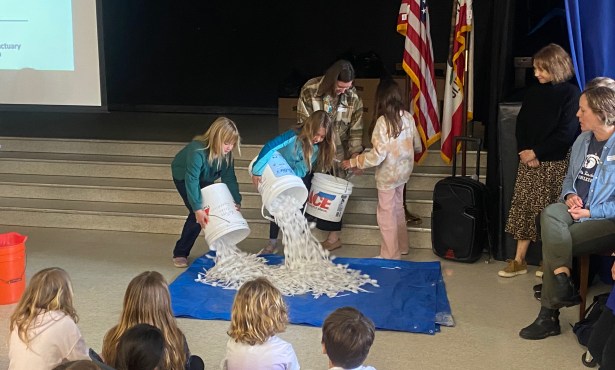Skimming the Surface
Bren Grad Advances the Art of Oil Recovery
Victoria Broje is the only UCSB PhD recipient who earned her creds by skimming the surface – specifically discovering a more efficient mechanism with which to remove oil from the surface of water. The technology used in the field has not significantly changed over the past 30 years from the submerged drums that rotate, collecting oil on their surfaces that would then be pumped out of the ocean. This technology worked, but not well enough, in the opinion of Broje, a graduate of UCSB’s Bren School of Environmental Science and Management. She looked into how the devices could get more oil to stick.
Bristles, Broje found, allow for more oil to stick, but less to be scraped away. Her gold idea was to fight surface area with surface area. She spent four years researching, testing, and designing better, more efficient drums while at the Bren School. After years of testing, the new model – a series of triangular grooves that run the same direction as the drum’s rotation – proved to be 200 percent more efficient than its predecessor, by increasing the overall amount of the drum’s surface to which oil could attach itself. Broje’s drum also comes with a scraper that fits almost perfectly into these grooves, allowing for nearly 100 percent oil recovery.
Originally a student in Russia studying offshore engineering, Broje was sent to Norway to do some in-depth research for her major. “I hate chemistry,” Broje admitted. “I was studying offshore engineering to avoid chemistry, but then I met Per Johan Brandvik, who made oil spill recovery sound like the most interesting thing to study, and I switched majors.”
Broje came to the Bren School because they were willing to give her academic freedom, with a bit of guidance from biogeochemistry professor,Arturo Keller.
“Arturo is a great professor because he is open-minded. Many professors want to produce students who are like them. They want their students to go off and teach,” Broje said. “My degree is applicable to the real world: I could probably get a job in any country. If someone needs an expert in oil spill recovery, I’m basically the only one.” Now living in Texas, Broje said her only regret is that she completed her PhD work so quickly. “I wish I could stay in SB for ten years doing my PhD. I should have made plans so that it took longer for me to get my degree,” she said. “I am permanently depressed. Living in Santa Barbara is better than living in Texas.”
Broje fell in love with surfing, volleyball, and guitars during her time in Santa Barbara, but she didn’t attend UCSB for the party scene. In fact, she says she didn’t even know it existed. “I was probably the only person in the university who came to Santa Barbara without knowing about Santa Barbara. When I saw the ‘CA’ after Santa Barbara, I thought it stood for ‘Canada.’ It turned out to be a lot better than Canada.”
To read Victoria’s paper on her invention, click here.



